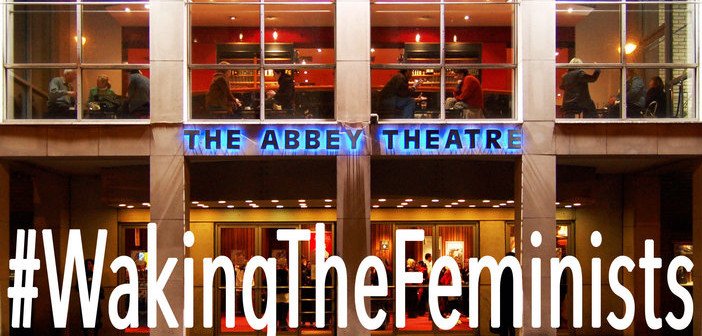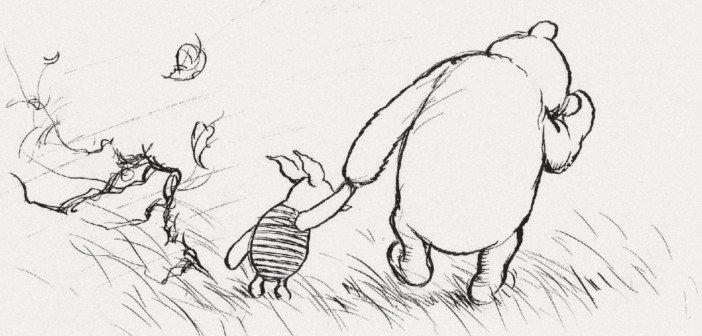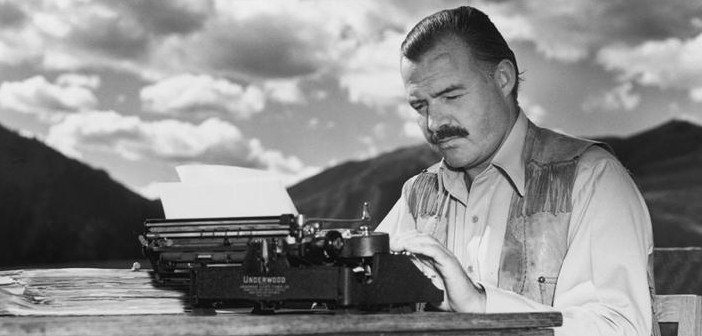The Lit Review |52|Dublin Book Festival
Dublin Book Festival
This year the Dublin Book Festival has scheduled over 50 events with nearly 100 authors and contributors taking part over four days. Smock Alley Theatre, hub of the festival, will host the magical Winter Garden again this year with its bookshop, cafe, children’s area and grown-up reading area.
The festival launches tonight with a presentation of Winter Pages, Ireland’s inaugural arts anthology. Kevin Barry, founder of the anthology, will be chatting to Seán Rocks of RTE Radio 1’s Arena with contributors Peter Murphy and Claire Kilroy.
On Friday, you can check into some lunch time readings, which are free to attend. Or if you’re stuck in work for the day, you can unwind at the launch of Waterford Whispers News Takes Over the World by Colm Williamson, published by Blackstaff Press.
You can also learn all about the people of the Rising. History Ireland’s Tommy Graham will be joined by Turtle Bunbury to discuss his new book, Easter Dawn: The 1916 Rising. Lucy McDiarmid will pop along chat about At Home in the Revolution: What Women said and did in 1916, and Fearghal McGarry will bring his reflections from The Abbey Rebels of Easter 1916: A Lost Revolution, to the panel.
You may wish to tune into Songbook with Homebeat and the Irish Writers Centre; a series bringing wordsmiths and music lovers together, with discussion from Valerie Francis and Conor Deasy.
On Sunday you can find out more about writing for young adults and children with Eoin Colfer, John Connolly and Marie-Louise Fitzpatrick, they will be chatting to Aoife Murray, Programme and Events Officer at Children’s Books Ireland. Whatever takes your fancy, you can book take a look through the programme here, but get in quickly as some events are already booked out.
Dublin International Literary Award Long list
Seven works of Irish fiction have made the long list for the 21st International Dublin Literature Award; the world’s most valuable annual literary prize for a single work of fiction published in English.
The seven books to make it to the long list are The Temporary Gentleman by Sebastian Barry, Academy Street by Mary Costello, The Undertaking by Audrey Magee, Unravelling Oliver by Liz Nugent, The Thrill of it All by Joseph O’Connor, Nora Webster by Colm Tóibín and The Diary of Mary Travers by Eibhear Walshe.
Colm Tóibín won the prize in 2006 for The Master. Previous winners also include Jim Crace, Kevin Barry, Colum McCann and Nicola Barker. The shortlist will be announced on April 12, 2016, and the Lord Mayor of Dublin will reveal the winner on June 9.
#Wakingthefeminists

Last week, I spoke about the backlash from female artists and theatre makers following the release of the Abbey’s programme for the 1916 centennial. Female artists were displeased by the gender imbalance of the 2016 programme, entitled Waking the Nation, which included just one performance written by a woman, a monologue written for children, by Ali White.
The dissent has provoked the Director of the Abbey, Fiach MacCongaile, to issue a response saying: ‘I regret the gender imbalance in our WAKING THE NATION programme for the significant year ahead. The fact that I haven’t programmed a new play by a female playwright is not something I can defend’.
A public meeting took place today in the Abbey Theatre to further discuss the strong debate that has flared up online, with help from the hashtag #wakingthefeminists.
MacCongaile, went on to say ‘I welcome the vigorous debate that has ensued since the announcement of the Waking the Nation programme. I look forward to participating in an open and frank dialogue and offer the Abbey Theatre as a venue for this discussion. Our challenge now is how to address this imbalance both here at the Abbey Theatre and nationally in the arts community and beyond.’
The overall mission of the campaign Waking the feminists is to achieve equality for female artists. Feminists, artists and academics have joined the campaign in Ireland and abroad, signing a petition to support the mission of the campaign.
French Vending Machines Dispense Short Stories
The city of Grenoble has teamed up with community publisher Short Édition to dispense short stories for free in public areas. Stories are drawn from a bank of 600 stories which have been chosen by Short Édition’s subscribers and writers. Interested passers-by can press one of the three buttons and the machine spits out a story, free of charge on a strip of paper resembling a receipt. Even better, the paper is recycled.
The Origins of Winnie the Pooh

A new book has revealed that the inspiration for our honey loving pal, Winnie the Pooh, came from a female bear cub. The book, Finding Winnie: The True Story of the World’s Most Famous Bear by Lindsay Mattick and Sophie Blackall, tells the story of Canadian veterinarian, Harry Colebourn; who rescued the bear on route to treat horses in the First World War. What a sound lad. Anyway, after the war, Colebourn, who named the bear after his hometown, Winniepeg, brought her to a London zoo. It was here she caught the attention of a little boy named Chistopher Robin, who named his teddy bear after her. Christopher’s father was in fact A.A Milne, who went on to create one of the most adorable little creatures in the history of children’s literature. Little Winnie, the black bear, lived in London zoo until her death in 1934. I wonder are her babies entitled to royalties?
Goodbye to the Lighthouse

The view that inspired Virgina Woolf to pen her classic novel To the Lighthouse in 1927, may soon be obscured by property developers. According to this article, the view of the famous literary lighthouse on the Cornish Coast, which had been kept safe from obstruction until now, may be diminished by a block of holiday apartments looking out towards the rocks of Godrevy. Woolf spent her childhood looking out to the lighthouse from the windows of Talland House in St Ives.
The Cornwall Council has received objections from many campaigners, including one from Woolf’s great-niece Virginia Nicholson, who wrote: ‘This is a short-sighted move by St Ives and Cornwall’s planners, who seem unaware of the legions of Woolf’s admirers who make the pilgrimage to the town lured by the special, untouched atmosphere captured in my great-aunt’s visionary novel To the Lighthouse – the view of which should remain unobscured for generations to come’.
Audiobooks: Harming literature?
Does listening to audiobooks qualify as ‘reading’? Forest Fables, a series commissioned by the Guardian to reinvent the magic of the woodland, is under scrutiny here with a debate on whether a story is different if it has been heard, rather than read?
Literary critic, Harold Bloom says ‘Deep reading really demands the inner ear as well as the outer ear. You need the whole cognitive process, that part of you which is open to wisdom. You need the text in front of you’.
Writer Neil Gaimen, disputes this, ‘I believe that if the writer is someone who can communicate well aloud (some writers can’t), you often get much more insight into a story or poem by hearing it’.
There is also the fair point made that people have been listening to stories far longer than they have been reading them. Listen to forest fables, with stories from the likes of Ali Smith, Alan Garner, Alec Finlay and Evie Wyld here, and you can make up your own mind.
Burn the Letters

Before his death in 1961, Earnest Hemingway wrote to the executors of his will saying, ‘It is my wish that none of the letters written by me during my lifetime shall be published. Accordingly, I hereby request and direct you not to publish, or consent to the publication, of any such letters’.
A reasonable request, but one that has now been overridden. Cambridge University Press recently published the third of a seven-volume collection of Hemingway’s correspondence. The New Yorker asks ‘Why is it when an author says very explicitly that she does not want her work published, we publish it?’ but continues, saying: ‘Restricted material is a glowing cache of treasure: scholars will seek it out. They will find a way to read the work; then they will find a way to publish it’.
This activity is not unusual; despite Franz Kafka burning about 90% of his papers, and asking his friend Max Brod to destroy the rest, Brod declined, and as a result, we have The Trial and Amerika.
Hemingway’s letters appear to cast him in a softer light. The writer usually appeared in public as a prickly and impatient sort of character, but in a letter to his ex-wife, Hadley Richardson, he refers to her as ‘the best and truest and loveliest person that I have ever known.’ Earnest Hemingway the Last Interview and Other Conversations will appear on Melville Press this December.
Images:
Dublin Book Festival: www.dff.ie
Lighthouse St Ives, Cornwall: www.college.columbia.edu
Waking the Feminists: www.change.org
Ernest Hemingway: www.biographies.com

